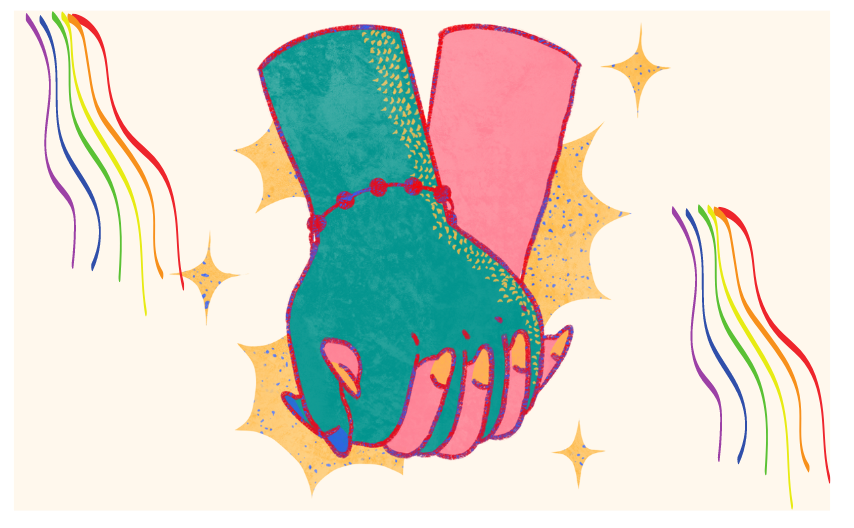LGBTQ Mental Health: How Rejection Shapes the Mental Landscape of an Individual
Introduction
Approximately 4.5% of U.S. adults identify as LGBTQ+, a demographic that experiences unique mental health challenges, including heightened levels of anxiety, depression, and the impacts of bullying and discrimination due to their sexual orientation [1].

There is a potential generational divide in the acceptance and understanding of diverse sexual orientations, which can further exacerbate feelings of rejection and stigma [1].
Women are more likely to identify as LGBTQ+ than men, highlighting the importance of recognizing the varied experiences within the LGBTQ+ community itself, ranging from mental health struggles to the effects of societal discrimination [1].
These statistics underscore the critical need for targeted mental health support and the development of coping strategies that address the specific challenges faced by the LGBTQ+ population.
The Prevalence and Impact of Rejection on LGBT Mental Health
The prevalence and impact of rejection on LGBTQ mental health are significant, with various studies highlighting the disproportionate rates of mental health challenges within this community:
- Mental Health Conditions: LGBTQ+ individuals face higher levels of depression, anxiety, and suicidal thoughts compared to their non-LGBTQ+ counterparts. Specifically, LGB adults are over twice as likely, and transgender individuals nearly four times as likely, to experience a mental health condition [6].
- Youth and Mental Health: The impact is stark among LGBTQ+ youth, with reports indicating that they are more than twice as likely to experience persistent feelings of sadness or hopelessness [6]. Additionally, LGBQ+ youth are at a heightened risk due to rejection, bullying, discrimination, and violence [8].
- Barriers to Healthcare: Discrimination does not only come from society but can also be found within the healthcare system, making it difficult for LGBTQ+ individuals to access the support they need. Many face harassment or a lack of cultural competency from potential providers, exacerbating the mental health challenges they face [1].
These factors collectively contribute to a mental health crisis within the LGBTQ community, underscoring the urgent need for targeted interventions and support.

Understanding the Sources of Rejection for LGBT Individuals
Understanding the sources of rejection for LGBT individuals involves examining various contexts and relationships that significantly impact their mental health and well-being.
- Family Dynamics:
- Parent-child attachment is foundational for developing healthy relationships later in life. However, LGBT youth may face disruptions in this attachment if rejected based on their sexual orientation or gender identity, underscoring the importance of parental acceptance for a healthy sense of self [7].
- Social Interactions:
- Beyond family, LGBT individuals may experience rejection from significant others, affecting their ability to form subsequent relationships. The Rejection Sensitivity (RS) model helps understand how such experiences influence future interactions, with vigilance being a core form of proximal minority stressors [3].
- Systemic and Societal Barriers:
- Minority stress theory highlights the chronic stressors sexual minorities face due to their stigmatized identities, including victimization, prejudice, discrimination, and internalized homophobia. These stressors, both objective and internal, are shaped by broader societal contexts, including laws and policies, further complicating access to mental healthcare services [9][2].

Strategies for Coping with Rejection and Fostering Resilience
To foster resilience and cope with rejection, LGBTQ+ individuals can adopt various strategies, emphasizing the importance of support systems and self-care:
- Support and Acceptance:
- Coping Strategies for Psychological Well-being:
- Building Resilience:

These approaches highlight the significance of both individual and community support in navigating the challenges faced by LGBTQ+ individuals due to rejection.
Remember. It’s essential to remember that while the techniques and insights shared in this exploration of LGBTQ mental health and the effects of rejection can provide understanding and solace, they are not substitutes for professional therapy. If you are struggling with mental health issues, seeking the guidance of a qualified therapist is a critical step toward healing.
Conclusion
Through exploring the unique mental health challenges faced by the LGBTQ+ community, it becomes evident that rejection, whether societal, familial, or internal, plays a significant role in shaping the mental landscape of these individuals.
The discussions throughout the article have underscored the dire need for targeted support and interventions to mitigate the adverse effects of discrimination and rejection on mental well-being. Providing unconditional love, acceptance, and tailored mental health resources could pave the way for a more inclusive society where LGBTQ+ individuals can thrive.
In fostering resilience, the strategies outlined emphasize the power of community, supportive environments, and adaptive coping mechanisms in overcoming the hurdles posed by rejection.
The journey towards mental health empowerment for LGBTQ+ individuals demands robust support systems, mindful societal shifts, and continuous advocacy for acceptance and equality. As we move forward, it will be crucial to keep these insights in mind, pushing for a world where every individual, regardless of their sexual orientation or gender identity, enjoys the mental peace and acceptance they rightfully deserve.

FAQs
How does being LGBTQ+ impact mental health?
Being part of the LGBTQ+ community doesn’t inherently cause mental health issues. However, experiences such as facing discrimination, encountering homophobia or transphobia, feeling socially isolated, dealing with rejection, and navigating the complexities of coming out can negatively affect one’s mental health. Conversely, fully accepting and embracing one’s LGBTQ+ identity can significantly enhance personal well-being.
What mental health challenges are common in the LGBTQ+ community?
Members of the LGBTQ+ community often grapple with heightened stress and lower self-esteem due to widespread discrimination and systemic prejudice. The need to feel accepted and loved for who they are is crucial, yet the persistent exposure to societal biases can lead to enduring psychological stress.
What obstacles do LGBTQ+ students encounter?
LGBTQ+ students do not experience mental health issues simply because of their sexual orientation or gender identity. However, they are more susceptible to mental health challenges due to frequent exposure to rejection, bullying, discrimination, and violence. These adverse experiences elevate their risk of suffering from depression, anxiety, and suicidal tendencies.
How does hiding one’s identity affect mental health?
Concealing one’s identity can have profound implications for mental health. An individual’s identity is closely tied to their sense of self and overall well-being. When people are unable to express their true selves, they may face difficulties in other areas of life, such as mental health challenges, decreased self-esteem, and weakened social connections.
References
[1] – https://mhanational.org/issues/lgbtq-communities-and-mental-health
[2] – https://www.ncbi.nlm.nih.gov/pmc/articles/PMC7876969/
[3] – https://www.ncbi.nlm.nih.gov/pmc/articles/PMC7497447/
[4] – https://www.mentalhealth.org.uk/explore-mental-health/statistics/lgbtiq-people-statistics
[5] – https://bmcpsychology.biomedcentral.com/articles/10.1186/s40359-023-01265-5
[6] – https://www.nami.org/Your-Journey/Identity-and-Cultural-Dimensions/LGBTQ
[7] – https://www.ncbi.nlm.nih.gov/pmc/articles/PMC5127283/
[8] – https://www.cdc.gov/lgbthealth/youth.htm
[9] – https://www.ncbi.nlm.nih.gov/pmc/articles/PMC4887282/
[10] – https://link.springer.com/article/10.1007/s40894-019-00118-w
[11] – https://www.ncbi.nlm.nih.gov/pmc/articles/PMC5656566/
[12] – https://www.ncbi.nlm.nih.gov/pmc/articles/PMC9319075/
[13] – https://repository.escholarship.umassmed.edu/bitstream/handle/20.500.14038/51716/Psychosocial%20challenges%20and%20coping%20strategies%20among%20people%20with%20minority%20gender%20and%20sexual%20identities%20in%20Zambia%20health%20promotion%20and%20human%20rights.pdf?sequence=1&isAllowed=y
[14] – http://melissainstitute.org/documents/Conf19-2-2015-WaystoBolsterResilience.pdf
[15] – https://www.lgbtagingcenter.org/resources/download.cfm?r=823
[16] – https://www.scusd.edu/sites/main/files/file-attachments/the_queer_and_transgender_resilience_workbook_1.pdf

